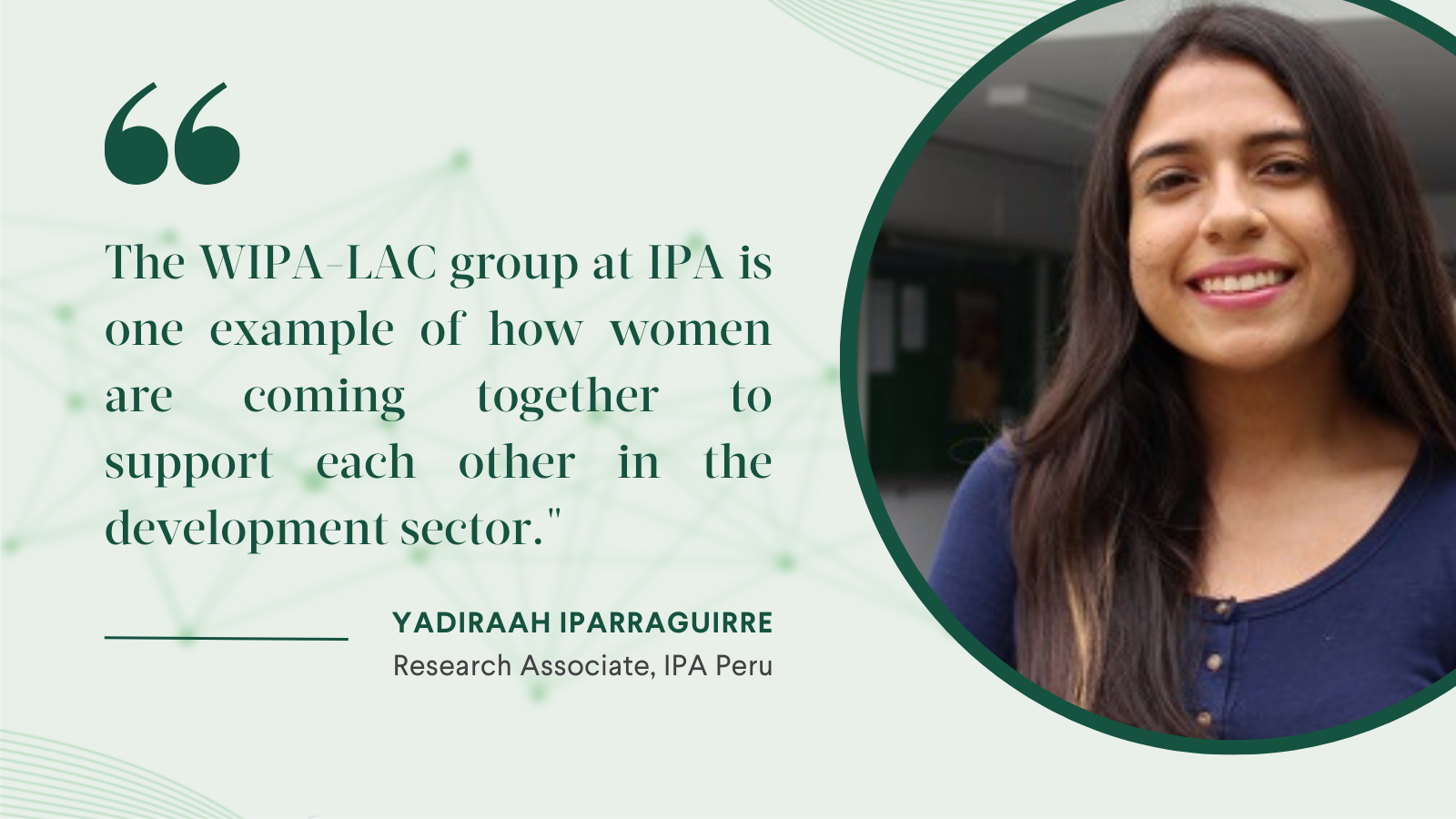Sowing the Seeds of Change: Building Community for Women in Research and Policy
"Behind every successful woman is a group of other successful women who have her back." - Unknown
Studies done by Innovations for Poverty Action show the crucial role women play in driving global development and mitigating poverty. Whether the goal is to increase contraception use, reduce intimate partner violence, or improve tertiary education, the data make clear that it’s essential to center women in the work. Yet if women play such important roles in international development and poverty alleviation, shouldn’t they be better represented in those fields?
Innovations for Poverty Action works at the nexus of economics and international development — two fields where women are significantly under-represented. According to one estimate, just over one quarter (26.3 percent) of all published economists are women, while another study found that less than half of leadership positions (44 percent) in international development are held by women. Clearly, these fields — and society in general — have a long way to go to achieve gender equality.
Recognizing this reality, IPA is taking steps to move the needle on gender equity. We launched our diversity, equity, and inclusion (DEI) strategy in 2021 knowing that increasing the representation of women in leadership positions was only one piece of the puzzle. When we examined our staff's feelings of inclusion and perception of organizational justice, it became clear that women not only wanted more comprehensive representation in the organization, but also opportunities to foster a sense of community and work with their female colleagues.
That’s why last year, we launched Women of IPA (WIPA) — women's groups dedicated to supporting the personal and professional growth of our female staff across the United States, Latin America and the Caribbean, and Africa. In our Latin America and Caribbean offices, the WIPA group is led by Yadiraah Iparraguirre, a research associate in IPA Peru. Motivated by her own experiences trying to break into the field, Iparraguirre is passionate about increasing the number of women doing economic and development research.
"Although it is difficult to find time to volunteer, I was interested in promoting this IPA initiative, as I believe in the importance of building community," she explained.
Driven by her deep curiosity about human behavior and how people make decisions, Iparraguirre pursued a degree in economics to gain a better understanding of the factors that influence our choices. As she delved deeper into the field, her passion for impact evaluation led her to her current role at IPA.
"Although I am currently privileged to enjoy higher education and the opportunities that I have, in my childhood the resources in my home were quite limited. For this reason, it is difficult for me not to get involved in research to generate escape bridges from poverty."
Today, Iparraguirre applies her expertise to design high-quality surveys, program them effectively, and train surveyors to achieve the high standards that define IPA's work.
“At IPA, I have the opportunity to see the hard work that goes into achieving a statistically significant coefficient,” Iparraguirre said.

Women often face unique challenges in their professional lives, including gender discrimination, harassment, and the struggle to balance work and family responsibilities. Employee resource groups for women in the corporate world are critical spaces for mentorship, collaboration, and building community. The WIPA group aims to accomplish that by providing a safe space for women to share their experiences, learn from each other, and find support.
One of WIPA-LAC's first events last year was a panel with professional women who had previously worked at IPA. Panelists shared how they overcame challenges in their field, and how they continue to leverage the skills and relationships they established at IPA.
“The WIPA-LAC group at IPA is one example of how women are coming together to support each other in the development sector,” Iparraguirre recognized.
But it is important to highlight that women’s efforts toward gender equality cannot solely be driven by women. This work must be done in partnership, and allyship, with men. Since we launched WIPA-LAC last August, the women’s group has been an important thought partner and collaborator with country offices and regional leadership to drive forward IPA’s DEI goals and bring to light the unique challenges that women in research and policy face, not just at IPA but in the field more broadly.
"We have planted the seed with this group, but there is so much more we can do. We want to involve other women at IPA, not just in the region but also at the global level and in positions of leadership," Iparraguirre said.
Achieving gender equality in the fields of economics and international development is a long-term project but women like Iparraguirre and employee resource groups like WIPA-LAC are working to bring it closer to reality.











